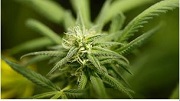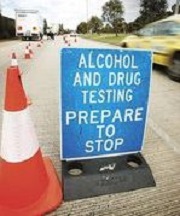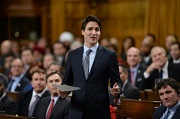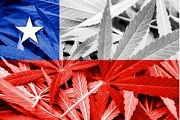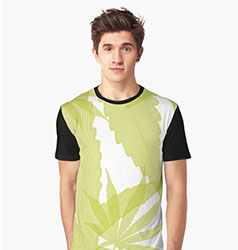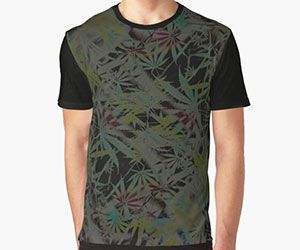University of Vermont Offering Course on Cannabis Science
Other institutions have offered classes in marijuana law and policy, but the...
Drug swab protest planned for Lismore
Nimbin’s HEMP Embassy is organising a peaceful protest about the impact saliva testing drivers is having on cannabis users.
Hemp Embassy president Michael Balderstone said organisers were expecting a large turn-out as ‘a lot of people are really angry about this new saliva testing’.
The protest will take place outside the Lismore Police Station from 10am on Monday.
‘We get phone calls every day at the HEMP Embassy from upset people who have lost their licence and sometimes their job as well.
Echonetdaily reported last week that one in six drivers tested for drugs during a police operation in the Tweed/Byron Local Area Command returned positive readings.
It’s understood that another police blitz is expected to take place in the region from December 18 to January 3.
Mr Balderstone said Monday’s protest would enable people to share their experiences.
‘There will be speakers at the protest telling their stories and others are welcome,” he said.
‘The saliva cannabis test is for any amount no matter how minuscule and that means drivers who smoked a joint days before are being busted.
‘We all know it’s below the belt but the Deputy Premier and NSW Police Minister Troy Grant is an old school ex cop who thinks it’s illegal and that’s that.”
‘One consequence he may not have realised is that it encourages drivers to use other far more dangerous drugs that are out of your system and saliva by the next morning.
‘Cannabis is uniquely fat soluble and stays in our blood for months, our urine for weeks and our saliva for days.’
‘The saliva testing combined with sniffer dogs has dramatically altered drug use trends for the worse”
‘No other country is testing cannabis like this and no other country has prohibited eating hemp seed which the police maintain affects their tests. This has never been trialled or tested.
‘The new drug driver testing is a serious case of bullying by the police as they know Cannabis users can test positive days after using their medicine.’
reference: http://www.echo.net.au
Going to pot? Canada leads way in legalizing marijuana
Ottawa (AFP) - Justin Trudeau raised eyebrows when he admitted to having dabbled in marijuana while a member of parliament, but his pledge as prime minister to legalize pot has been broadly cheered.
He said in a policy speech on Friday that his Liberal government would introduce legislation as early as 2016 to legalize marijuana, making Canada the first in the G7 bloc of industrialized nations to do so, although precise details remain sketchy.
Two in three Canadians support decriminalizing possession and use of the mind-altering weed, according to a recent Ipsos poll.
Support is widespread and at its highest level in three decades, it said, even though cannabis use has fallen off.
Details of the Liberal plan haven't yet been released. However, it is expected to go much further by not only legalizing marijuana but also creating a regulated market for it, as Uruguay and a few US states have done.
An estimated one million out of Canada's 35 million people regularly smoke marijuana, according to the latest survey taken in 2014.
Trudeau admitted in 2013 to having smoked pot five or six times in his life, including at a dinner party with friends since being elected to parliament.
He has also said that his late brother Michel was facing marijuana possession charges for a "tiny amount" of pot before his death in an avalanche in 1998, and that this influenced his decision to propose legalizing cannabis.
"I'm not someone who is particularly interested in altered states, but I certainly won't judge someone else for it," Trudeau said. "I think that the prohibition that is currently on marijuana is unjustified."
- Details scarce -
In 2014, there were just under 104,000 police-reported drug incidents in Canada. Of these, 66 percent were related to cannabis, primarily for possession, according to the official Statistics Canada.
Police chiefs have urged legislative change allowing them to hand out fines for small amounts of pot possession instead of laying criminal charges to reduce policing and court costs, and to do away with such convictions affecting Canadians' travel, employment and citizenship.
"This isn't about making cannabis more available to smoke, it's about dealing with a bad prohibitionist model that has led to global carnage," University of Ottawa criminologist Eugene Oscapella told AFP, citing drug-cartel killings as an extreme example.
Legalizing pot will "destroy the illegal market," he said, adding that "the new regime should be based on public health to maximize benefits and minimize harms."
Once Ottawa takes marijuana off its list of controlled drugs, regulating it will likely fall on Canada's provinces, the same way alcohol distribution is managed.
"It's conceivable but unlikely that you will be able to go to a (corner store) in Quebec where you can now buy alcohol in order to buy marijuana," Oscapella said.
He said he would be watching for a possible backlash from allies abroad that take a stiffer line on drugs and impacts on international treaties, as well as who will be allowed to produce pot and how it will be sold.
- Tory opposition -
"There are a lot of niggly little details that need to be worked out," said Oscapella. "The attorney general can stop prosecutions of drug possessions immediately, but distribution and other matters will take longer to sort out."
The use of marijuana for medicinal purposes was effectively legalized in Canada in 1999, but subsequent efforts to soften Canada's pot laws went up in smoke with the election of Stephen Harper in 2006.
Harper took a hard line against what he called a Beatles-era drug culture, saying cannabis was more dangerous for health than tobacco.
His former health minister Rona Ambrose, who succeeded Harper as Tory leader, warned that judicial rulings had chipped away at the 1923 cannabis prohibition before the drug could be shown in clinical trials to be safe to use.
In June, she said she was "outraged" that the Supreme Court had expanded the definition of medical marijuana to allow users to bake it into cookies or brew pot leaves for tea instead of only smoking it.
The morning after the Liberals swept to power in October, pot stocks doubled in price as investors bet on firms already producing marijuana for medical use being able to quickly scale up to serve recreational pot users too.
Only six firms were initially licensed by Health Canada to grow and sell medical marijuana in 2014. The number of licensees has since shot up to 26.
reference: AFP
https://au.news.yahoo.com/world/a/30311983/going-to-pot-canada-leads-way-in-legalizing-marijuana/
Chile’s President Signs Decree Removing Cannabis as a ‘Hard Drug’, Legalizing Medical Cannabis Sales
The decree also legalizes the distribution of cannabis-based medicines, such as tablets and tinctures, to be sold at pharmacies.
In July, Chile’s...
Latest
Coronavirus Strikes Massachusetts Cannabis Company Employees
Reassessing the Essential: Cannabis in the Time of a Pandemic
5 Reasons To Try Aspen Valley CBG Flower (30% Off)
High Times Cannabis Cups Go Virtual In Wake Of Coronavirus Pandemic
Drug Enforcement Administration Proposes Plan To Expand Cannabis Research
Ghana Legalizes Cannabis For Medicinal And Industrial Uses
The cheapest legal weed in Canada: Discover these cannabis ‘value brands’
Cannabis and coronavirus: Here’s what you need to know
cannabis designs
The Best Of
WHO Rules CBD Should Not Be a Scheduled Drug

Dr Cristina Sanchez PhD video interview on medical marijuana and cancer

Biochemist Dennis Hill interview; Cannabis oil as a cure for cancer.
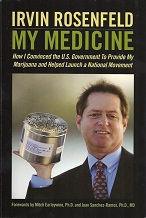
The unofficial World Record holder for cannabis smoking part 1



